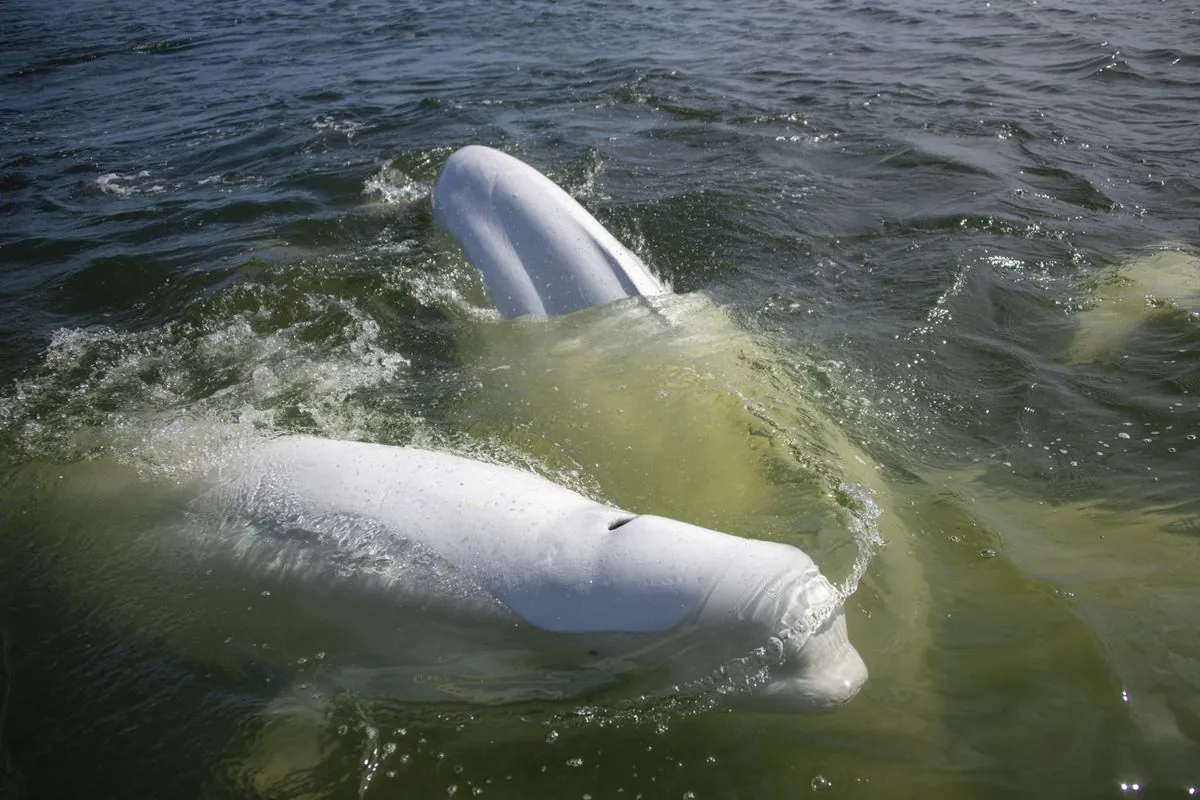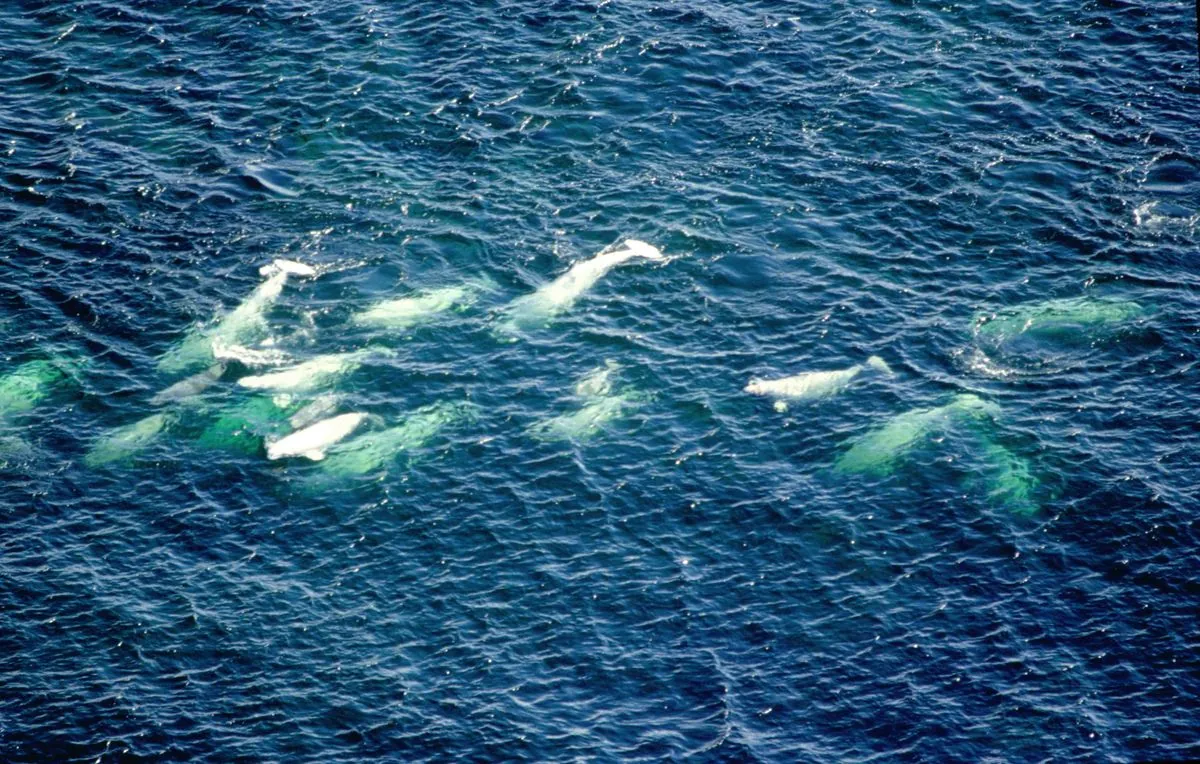Churchill's Beluga Whales: A Beacon of Hope Amid Arctic Changes
Churchill shifts focus to beluga whale tourism as climate change threatens polar bears. These social "sea canaries" bring joy and healing, but face uncertain future due to Arctic ecosystem changes.

In the waters of Hudson Bay, near the town of Churchill, a remarkable spectacle unfolds each summer. Up to 4,000 beluga whales grace the Churchill River, their white forms gliding through the water with playful exuberance. These gentle giants, known for their distinctive bulbous foreheads and ability to swim backwards, have become a beacon of hope for a community facing economic challenges due to climate change.
As the warming Arctic threatens polar bear populations, Churchill is pivoting its tourism focus to these charismatic marine mammals. Valeria Vergara, a senior scientist at the Raincoast Conservation Foundation, describes belugas as the "social butterflies of the whale world." Their gregarious nature and complex vocalizations have earned them the nickname "sea canaries."

These highly intelligent creatures, with lifespans of 35-50 years, possess remarkable abilities. They can dive to depths of 1,000 meters and change the shape of their "melon" to focus their echolocation beams. Belugas are one of the few whale species that can move their neck, adding to their expressive nature.
For Erin Greene, a local paddleboard instructor, belugas have played a crucial role in her healing journey. After surviving a polar bear attack in 2013, Greene found solace in the company of these gentle creatures. She now shares this therapeutic experience with tourists, offering paddleboard excursions that bring people face-to-face with the sociable whales.
"I've never seen an animal except for maybe puppies bring that amount and capacity of joy to people. Everybody's smiling when they get off the water... Everybody's just experiencing joy. And it's the whales that provide that."
Greene's connection with the belugas extends to singing to them, including the Beatles' "Yellow Submarine" and songs from the movie "Eurovision." This musical interaction highlights the whales' curiosity and their ability to mimic human speech, a trait that has been observed in captive belugas.
However, the future of these remarkable creatures is uncertain. Climate change is altering the Arctic ecosystem, potentially affecting the belugas' food sources and habitat. The disappearance of sea ice not only impacts their hunting grounds but also leaves them more vulnerable to predators like killer whales.
Pierre Richard, a beluga expert from the Northern Studies Center in Churchill, notes that changes in the prey base, particularly the decline of high-fat Arctic cod, could have significant consequences for beluga populations. While the global beluga population is currently stable, with around 200,000 individuals worldwide, localized threats could impact specific groups and their unique cultures.
As Churchill adapts to a changing Arctic, the belugas offer a glimmer of hope. Their presence not only supports the local economy but also provides a powerful reminder of the intricate connections between humans, wildlife, and the environment. Preserving these "gentle people of the sea" is not just about protecting a species, but about safeguarding a rich cultural heritage that has evolved over millennia in the icy waters of the Arctic.


































